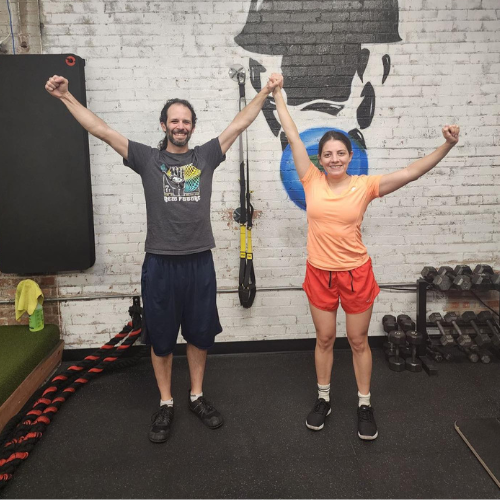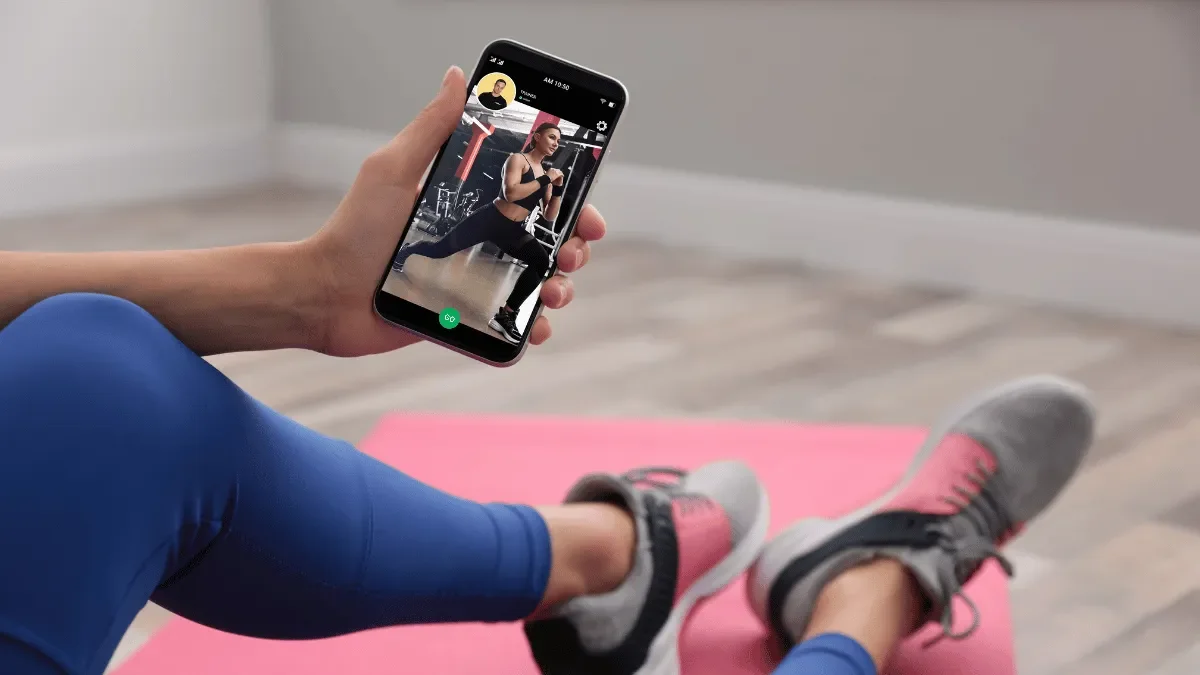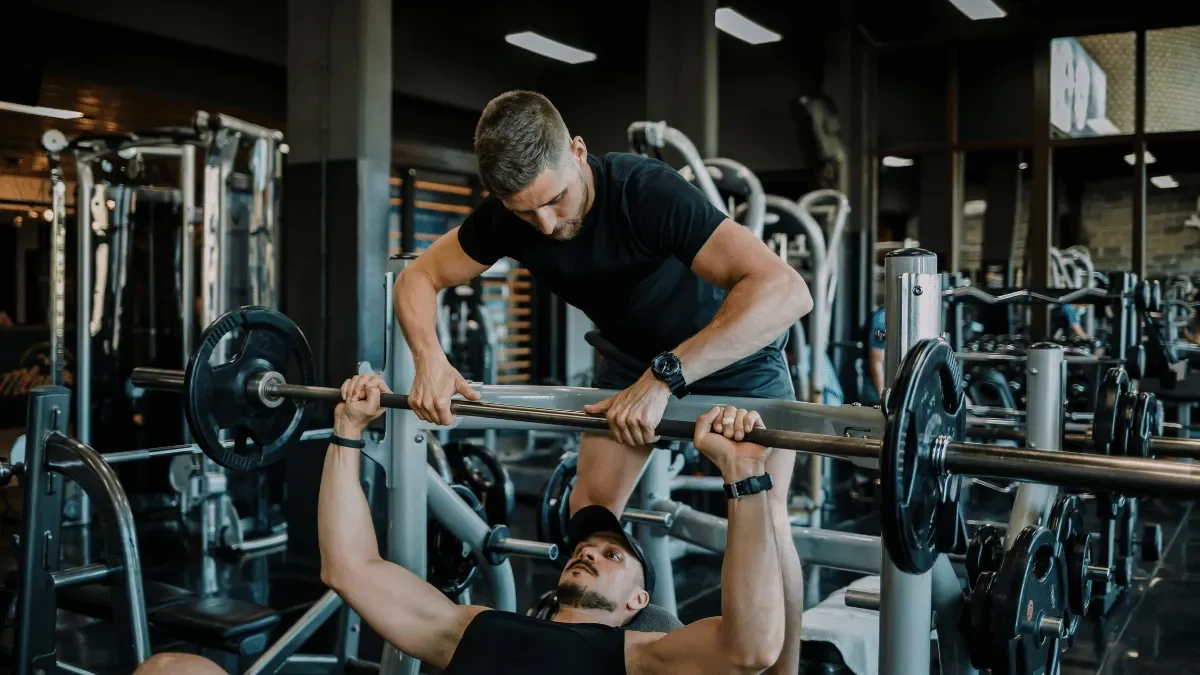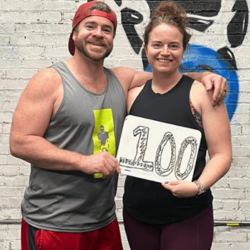Personal Training vs Fitness Apps — Which Delivers Better Results?
Intro
With smartphones and wearable technology becoming part of everyday life, fitness apps have made it easier for people to start exercising. A few taps can unlock thousands of workout plans, nutrition trackers, and progress charts. While this convenience helps many begin their journey, an important question remains: can an app truly replicate the guidance and results that come from working with a personal trainer?
For those pursuing results that last, especially in a fitness-driven city like Denver, the difference between automation and personalization can be profound. Apps provide data. Trainers provide direction.
If you’re deciding between downloading the latest app or partnering with a certified coach, this guide will help you understand which option best fits your goals. (For a tailored approach, explore our Denver Private Personal Training page to see how personalized coaching can help you train smarter and stay consistent.)
Meet our Denver
Personal Trainers
TL;DR
Fitness apps offer convenience and affordability, but personal training provides the individualized attention, accountability, and expertise needed for long-term results. The best approach often combines both, using technology for tracking while relying on human coaching for motivation, safety, and performance.
The Rise of Fitness Apps and Why They’re So Popular
Over the past decade, fitness apps have transformed how people exercise. From guided yoga sessions to AI-generated workout plans, there’s an app for nearly every goal imaginable. Popular platforms like MyFitnessPal, Peloton, and Fitbod have millions of users — and for good reason.
Benefits of fitness apps include:
Convenience: Workout anytime, anywhere — whether you’re at home, in a hotel, or at a park.
Affordability: Monthly subscriptions cost far less than in-person training sessions.
Tracking: Apps help you monitor calories, reps, heart rate (Garmin), and even recovery metrics.
Variety: Users can switch between strength training, HIIT, yoga, and mobility routines.
For beginners, these apps can remove the guesswork. They make fitness feel approachable, allowing users to get moving without needing expert instruction.
But while accessibility has improved, results often plateau when personalization ends.
“Fitness isn’t one-size-fits-all. You can’t algorithm your way to better movement — you need feedback, support, and a plan that adapts to you.”
Where Fitness Apps Fall Short
Despite their popularity, fitness apps have one major flaw — they can’t adapt like a real coach.
Here’s where they struggle:
Limited Personalization: Most apps offer cookie-cutter routines that don’t account for injuries, form issues, or progression needs.
No Real Accountability: Skipping a workout doesn’t come with a text from your trainer asking why.
Lack of Form Correction: Apps can’t adjust your squat depth, modify your deadlift stance, or correct posture on the spot.
Overemphasis on Data: Tracking calories and reps is great, but it doesn’t replace movement quality or mindful training.
When motivation dips or confusion sets in, the limitations of tech become clear. This is where personal training bridges the gap.
Why Personal Training Still Wins
Personal training remains the gold standard for achieving fitness goals safely and effectively. At its core, it’s not just about exercise — it’s about partnership.
Here’s what makes personal training invaluable:
1. Customized Programming
Every workout is built around your goals, body type, and ability. Whether you’re training for strength, mobility, or recovery, your coach tailors your plan for you, not a generalized “user profile.”
2. Real-Time Feedback
A trainer ensures every rep is performed safely and efficiently, reducing injury risk and maximizing results. Apps can’t tell when your knees cave in during squats, but a trainer can fix it instantly.
3. Accountability & Motivation
It’s easier to show up when someone’s expecting you. A trainer provides structure, encouragement, and consistency, key drivers of long-term progress.
4. Holistic Coaching
At Fight Gravity Fitness, personal training extends beyond workouts. Trainers help with mobility, posture, and lifestyle strategies so your body performs better in everyday life, not just in the gym.
When your progress plateaus or life gets hectic, a real person helps you adjust, adapt, and keep momentum going.
For a deeper look at this approach, visit Denver Private Personal Training.
The Hybrid Approach — How Fitness Apps and Trainers Can Work Together
You don’t have to choose only one. Many people find success using both fitness apps and personal training together.
Here’s how a hybrid strategy can help:
Tracking & Data: Use apps to log workouts, nutrition, and recovery so your trainer can analyze and adjust.
Accountability Between Sessions: Follow app-based reminders for at-home or travel workouts.
Goal Setting: Track metrics over time while relying on your trainer to interpret and refine your plan.
Best types of apps to complement personal training:
Habit tracking apps like HabitBull or Streaks.
Mobility apps such as GOWOD or ROMWOD.
Nutrition apps like MyFitnessPal for macro awareness.
At Fight Gravity Fitness, clients often use apps to supplement their sessions — turning data into actionable progress.
Why Human Coaching Beats Algorithms
While fitness apps can deliver workouts, they can’t deliver connections. Motivation is deeply human, and personal trainers understand that consistency often depends on empathy, not just data.
Consider this:
A fitness app won’t notice when you’re stressed, fatigued, or recovering from an injury — but a trainer will. They’ll modify your plan to match your energy levels, ensuring you keep moving safely and effectively.
Human coaches provide:
Emotional support when motivation wanes.
Adaptation when life gets unpredictable.
A genuine investment in your success.
As Nick Butler says,
“Technology can remind you to move — but only a coach can teach you how to move better.”
That difference is what turns effort into transformation.
Top 3 Reasons Personal Training Beats Fitness Apps
1. Personalized Progress: Every workout adapts to your body and goals.
2. Accountability: It’s harder to skip when someone’s counting on you.
3. Form & Safety: Trainers correct your technique to prevent injuries.
Apps can guide you, but trainers transform you. Share this post if you agree that real results come from real coaching.
Conclusion — The Best of Both Worlds
When it comes to fitness apps vs personal training, the winner depends on your goals — but for most, nothing replaces human guidance. Apps can complement your journey, but personal trainers make it sustainable.
The best approach? Use technology to track progress, and let your trainer handle the rest. Together, they create a system of accountability, data, and direction — the foundation for long-term success.
If you’re ready to experience a smarter, more personalized fitness journey, explore Denver Private Personal Training and start training with a plan designed for you.
(Also read: Beginner Fitness Programs: Your Complete Fitness 101 Guide)
FGF’s Client
Success Stories
FAQ
1. Can fitness apps really replace personal training?
Fitness apps are great for convenience and tracking, but they lack real-time feedback, personalization, and accountability. A personal trainer adjusts your program, ensures proper form, and helps you stay consistent, which apps simply can’t replicate.
2. What are the main advantages of using a fitness app?
Fitness apps make it easy to start exercising anywhere and at any time. They offer variety, progress tracking, and affordability, making them a great tool for self-guided workouts or supplementing personal training sessions.
3. Why is personal training more effective than using a fitness app alone?
Personal training provides customized workouts, professional guidance, and accountability that lead to faster and safer progress. Trainers help you build sustainable habits, correct form, and adapt your plan as your goals evolve.
4. Can I use both a fitness app and a personal trainer together?
Absolutely. Combining both creates a powerful hybrid approach. You can use an app to log workouts, track nutrition, and measure progress, while your trainer uses that data to fine-tune your plan and keep you accountable.
5. How do I decide if personal training is right for me?
If you want expert guidance, motivation, and faster results, personal training is worth the investment. It’s especially beneficial if you’re new to exercise, managing an injury, or looking for a structured program designed specifically for your goals.
Nicholas Butler
Founder, Fight Gravity Fitness
Nick Butler is a passionate fitness professional who believes that better movement leads to a better life. As the founder of Fight Gravity Fitness, he specializes in helping busy professionals build strength, restore mobility, and enjoy an active, pain-free lifestyle. Nick holds certifications as a NASM Certified Personal Trainer, TRX Certified Instructor, Silver Sneakers Certified, and is CPR Certified. With years of experience and a focus on functional movement, Nick brings a supportive, practical approach to fitness that gets results without the hype.







